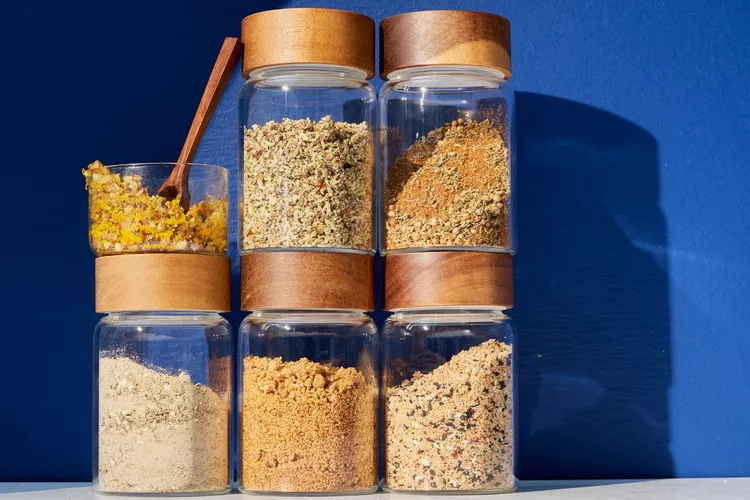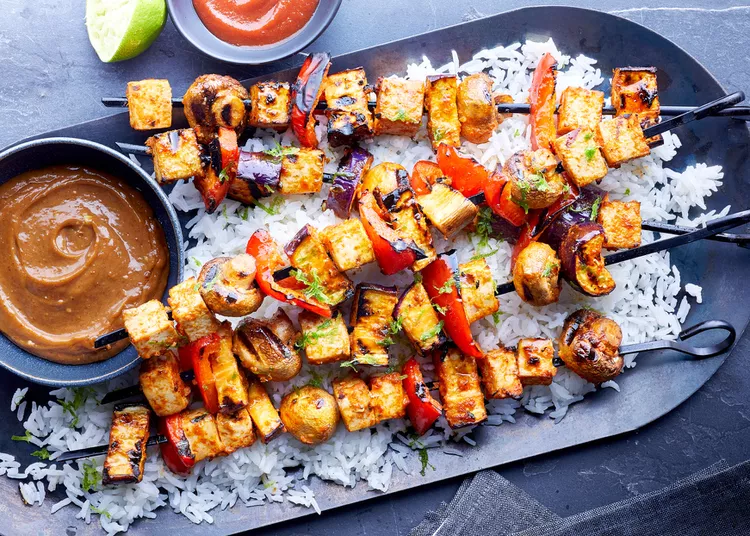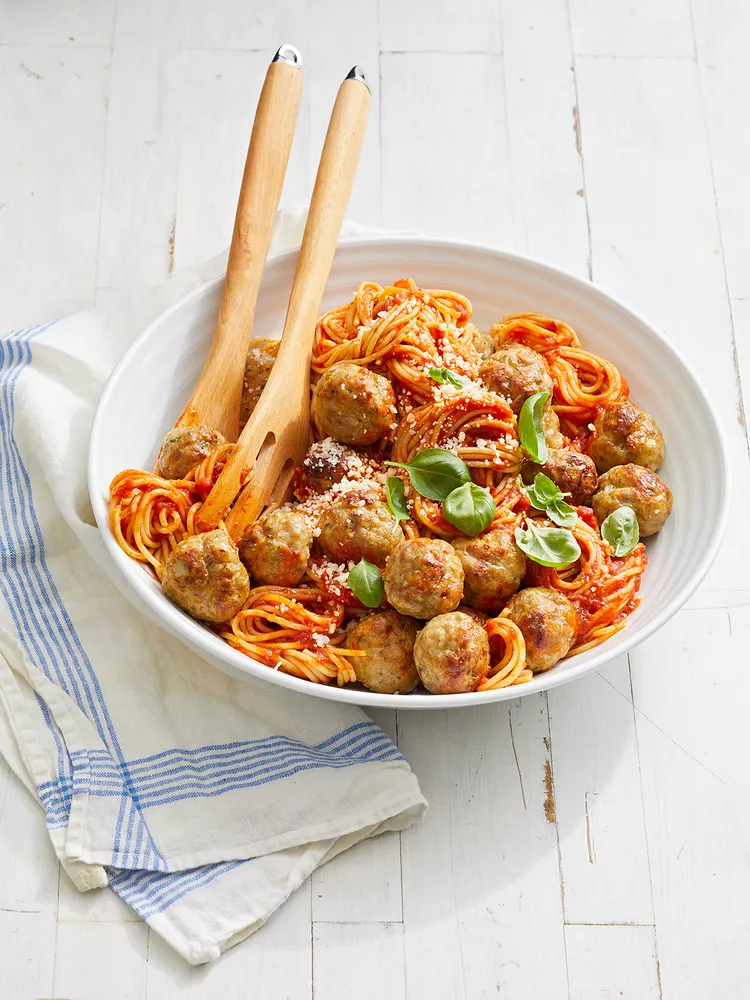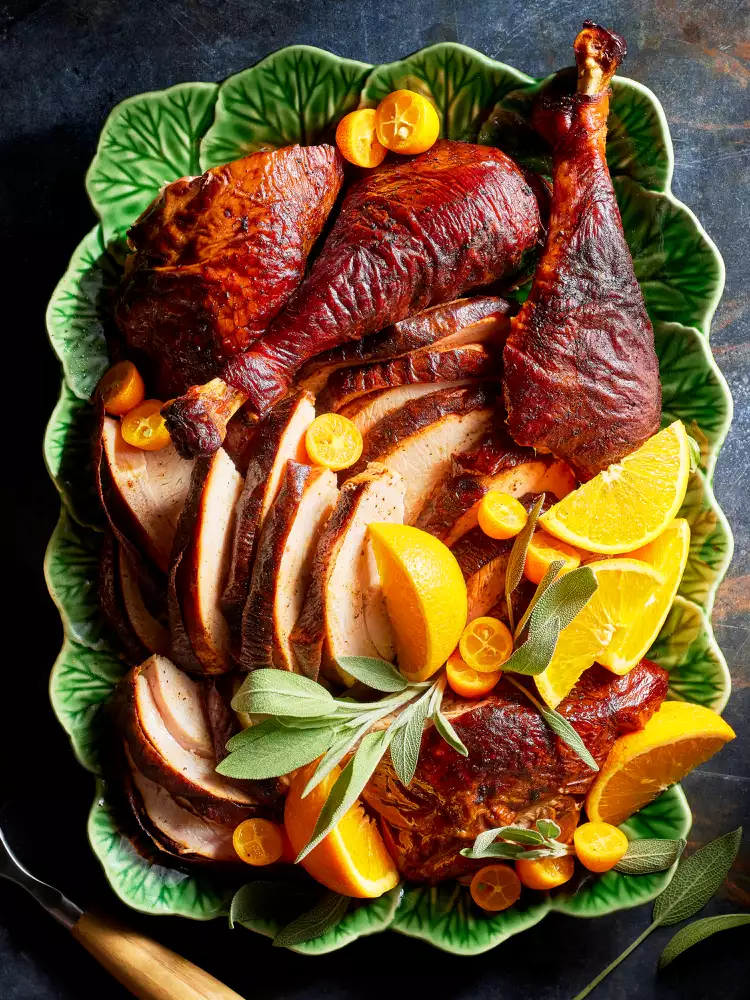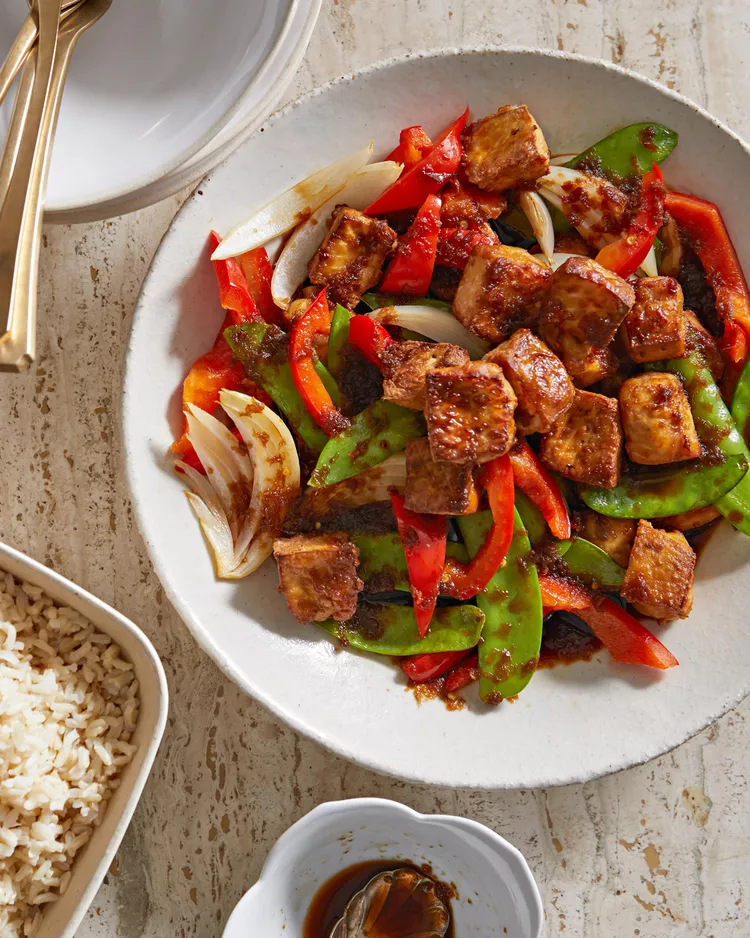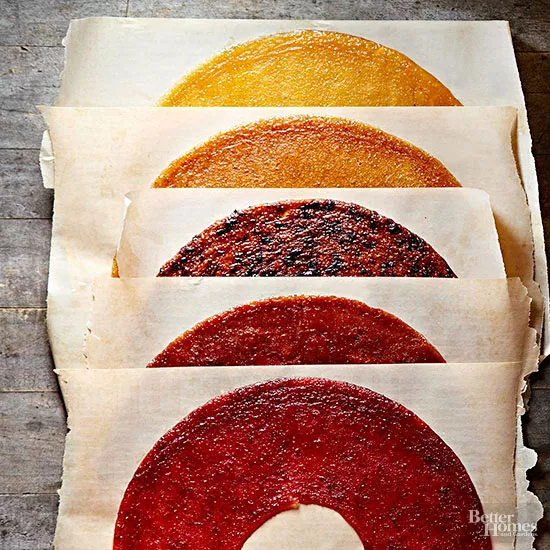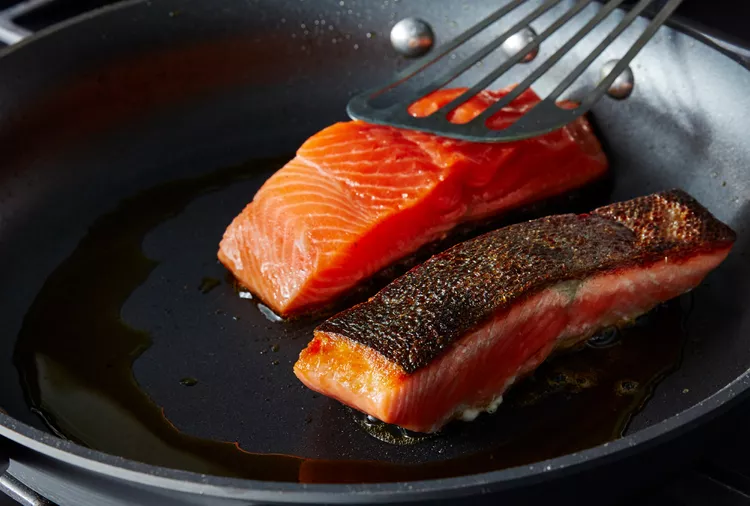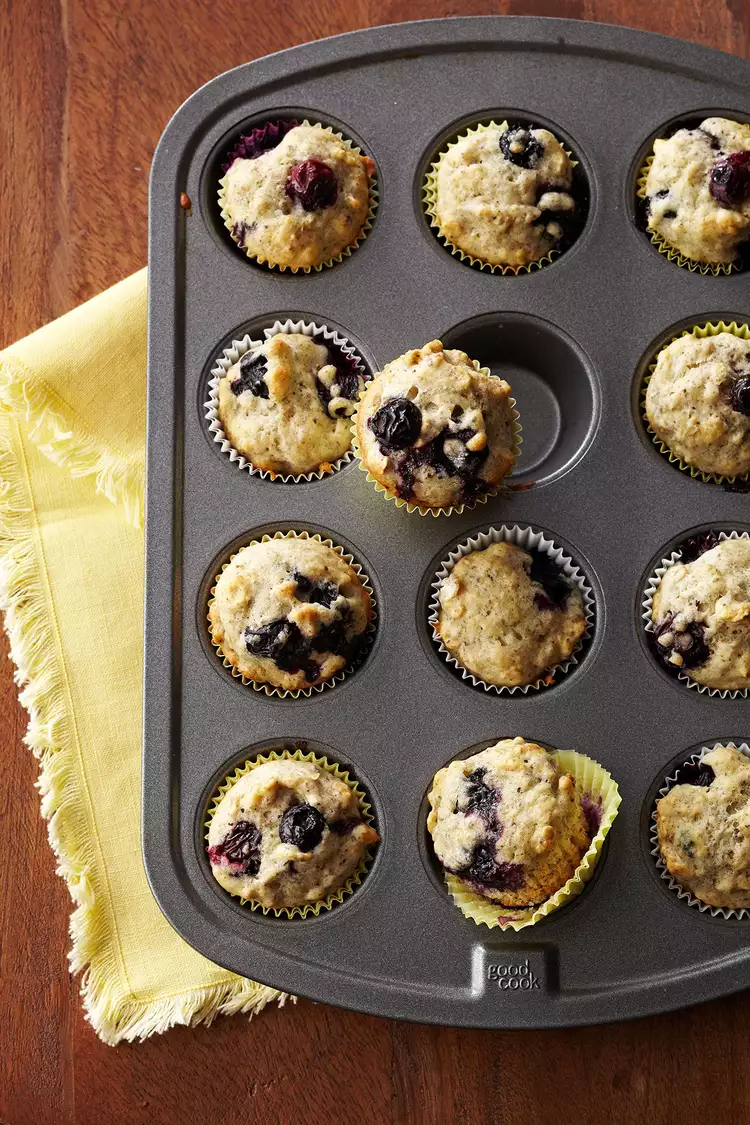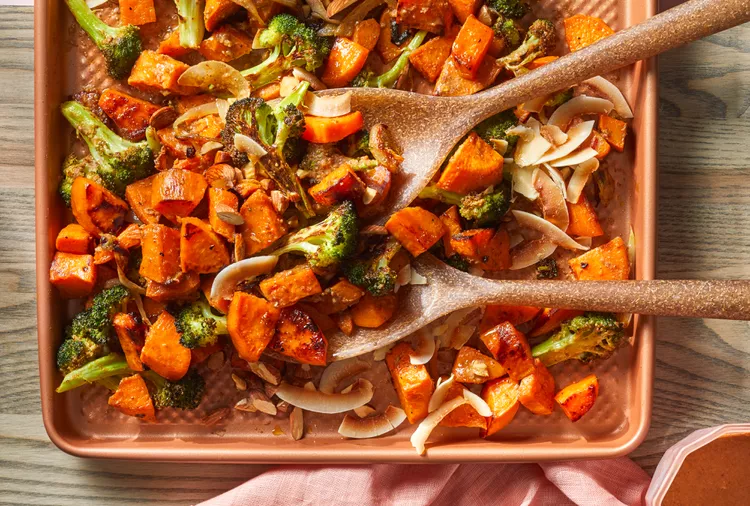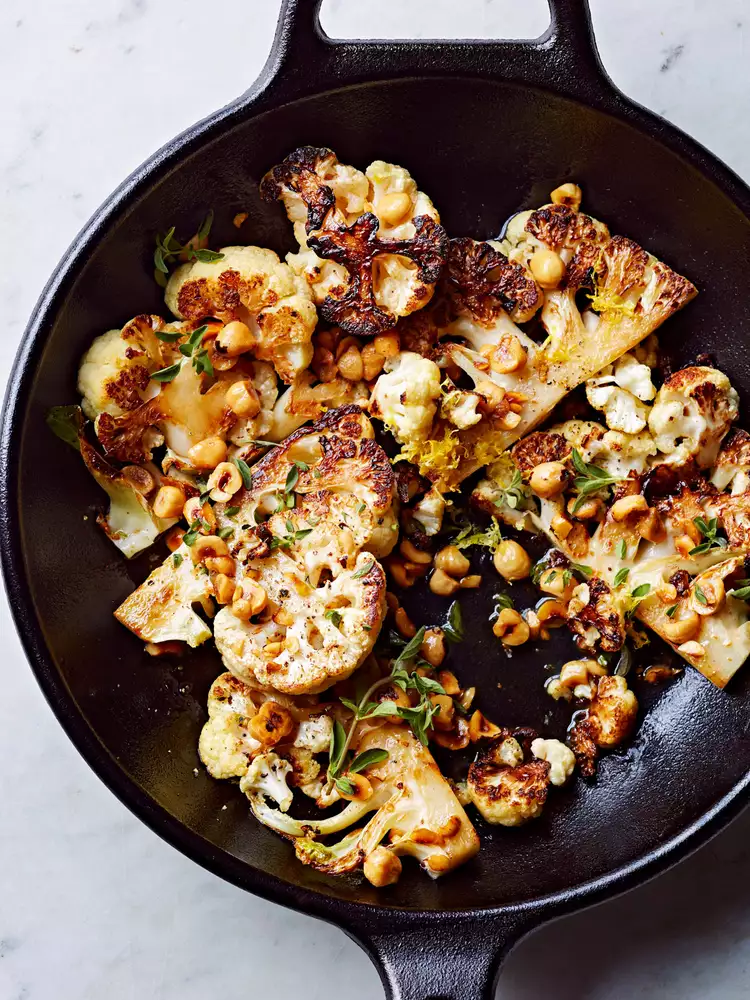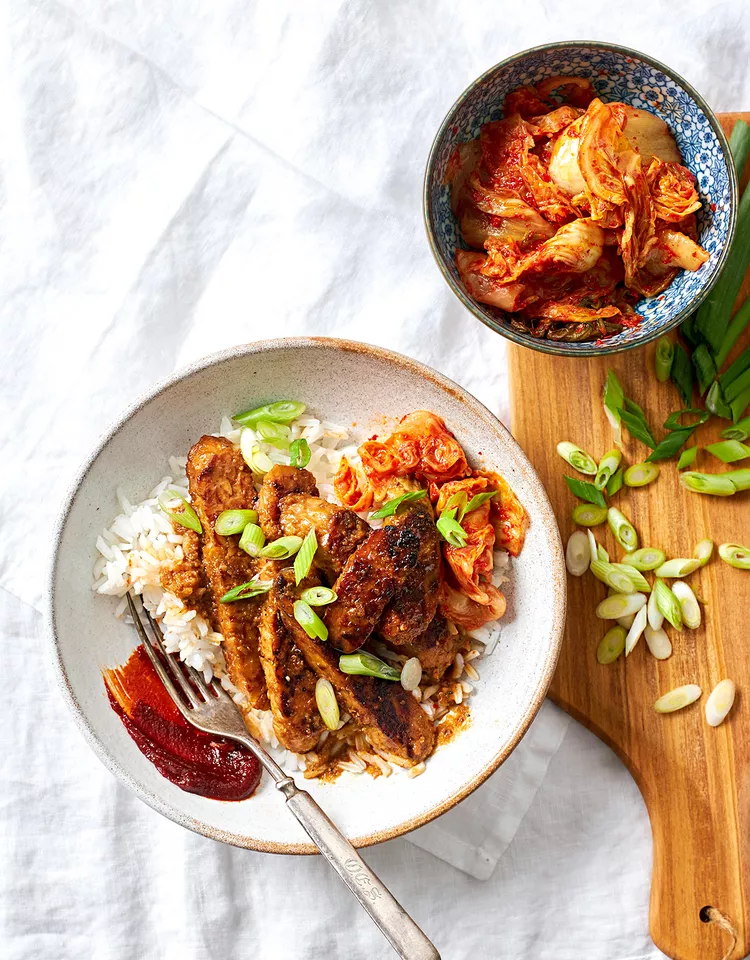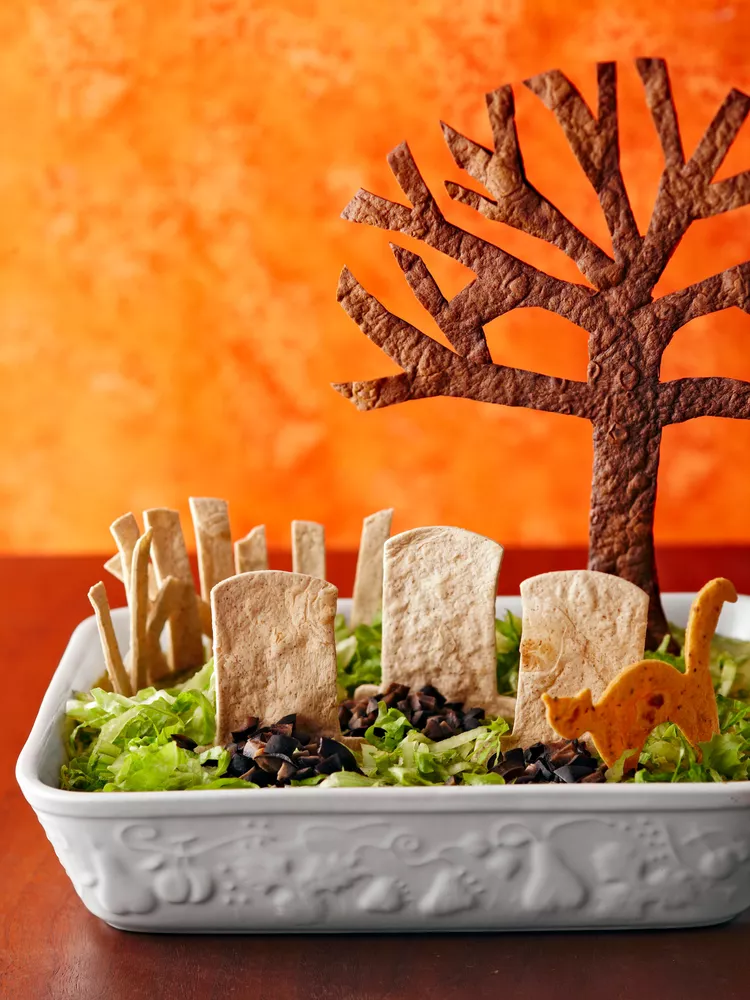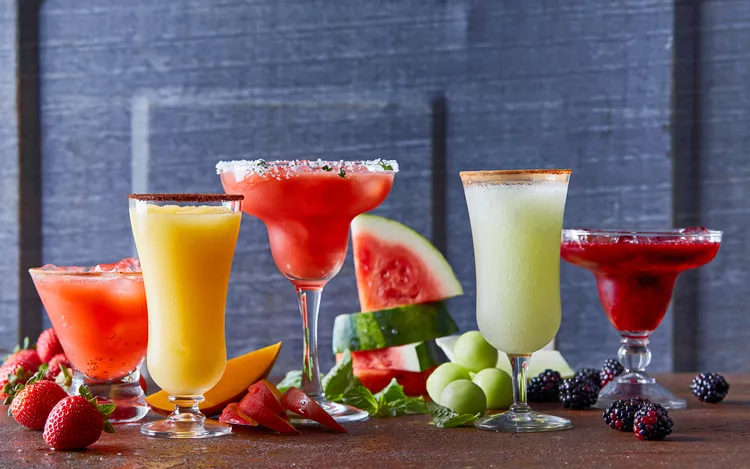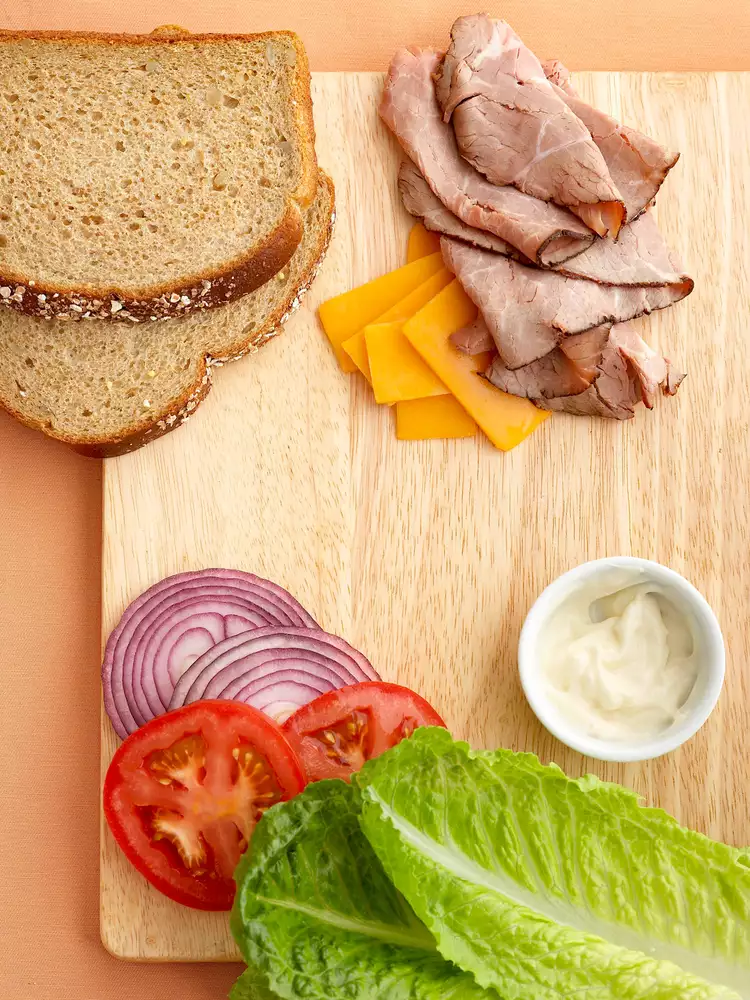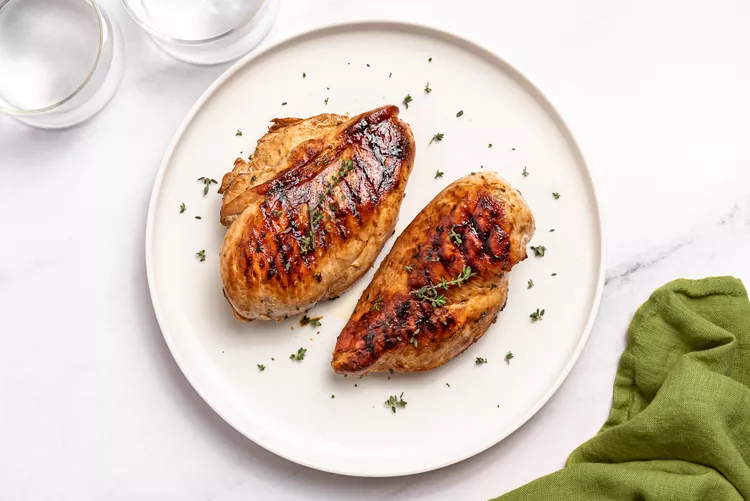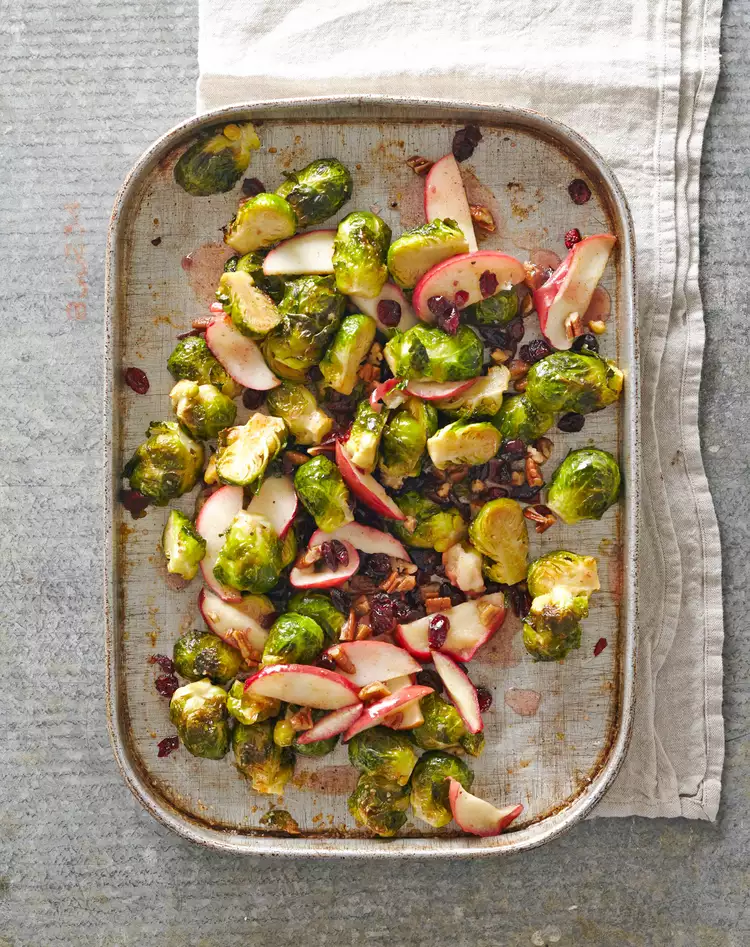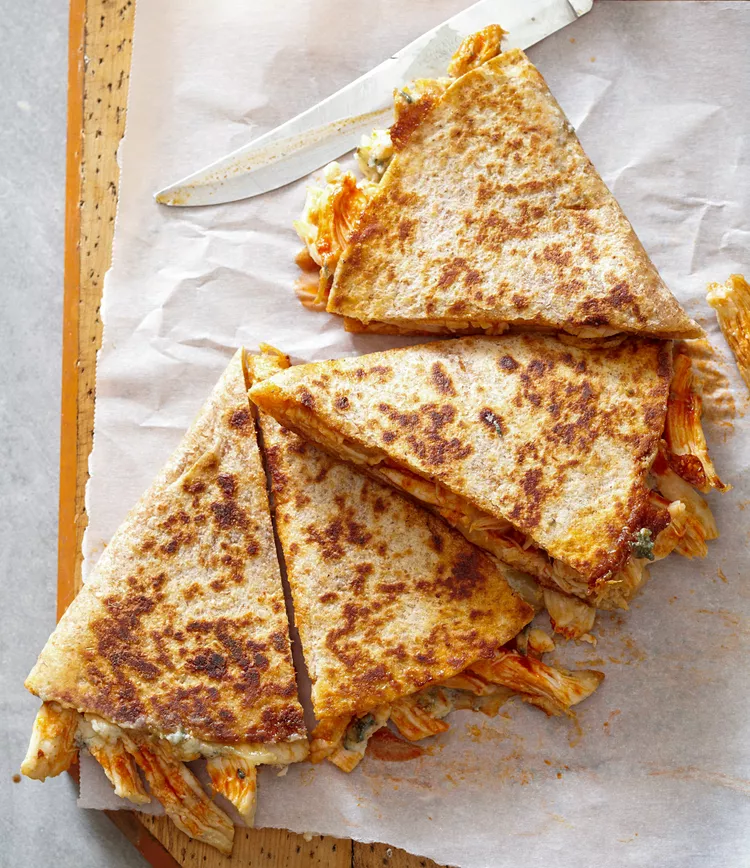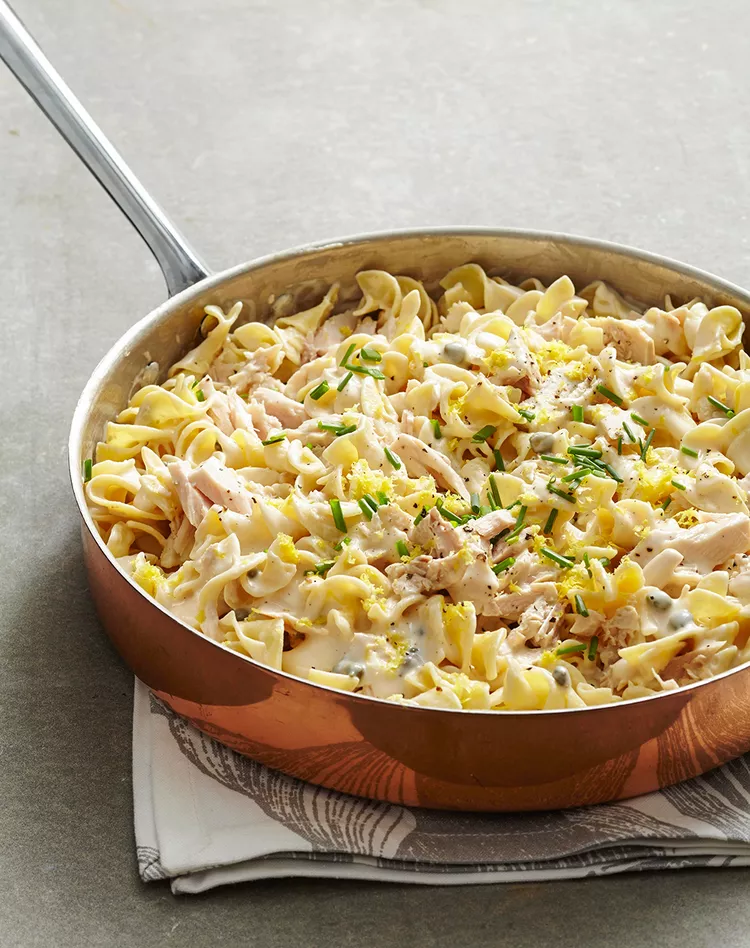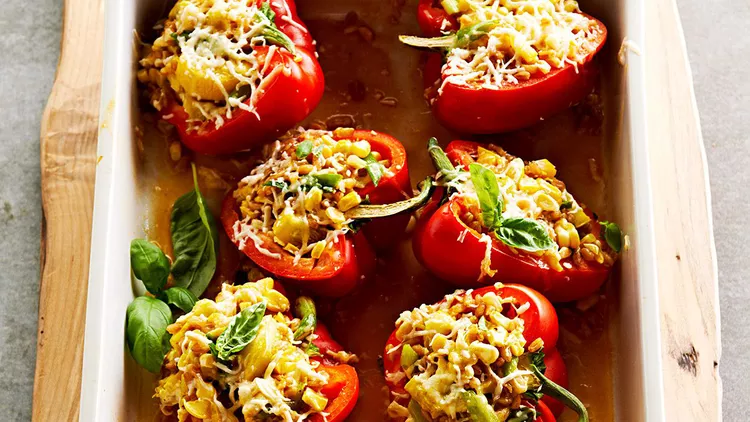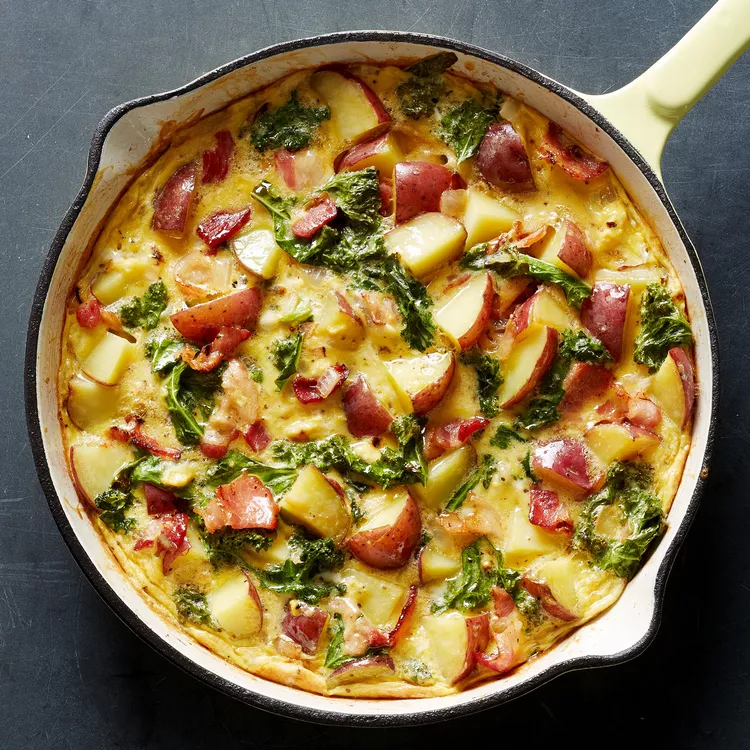While BBQ sauce might seem like the most important flavor component in your smoked or grilled meat meal, we'd like to nominate another contender in the MVP taste race: BBQ rubs. Since it's often either the first ingredient applied (in other words, it has the most time to infuse every ounce of meat with flavor) or the last ingredient, the best BBQ rub recipes can make your meal stand out. Try these unique spice blends, our go-to homemade BBQ rub recipes, to take your meats to new levels of deliciousness.
What Is a BBQ Rub?
A BBQ rub is a mixture of herbs, spices, and seasonings liberally applied to coat the outside of meat, poultry, or fish. Salt is always a great starting place for a rub. It helps the rub penetrate, and it rounds out and brings together the flavors of the ingredients. Consider:
- Table salt: Very fine grains
- Kosher salt: Coarse grains
- Sea salt: Evaporated from seawater, can be fine grains or larger flakes
- Seasoned salt: Table salt + other spices
How to Make BBQ Rubs
To begin your search for the perfect rub, determine if you want a wet rub or a dry rub.
Dry BBQ Rubs
Just like it sounds, dry rubs contain only nonliquid ingredients. A dry BBQ rub is all about achieving that perfect crust that boosts the meat's flavor (not the moisture content). The mix of dried herbs and spices, plus salt and sugar, adheres to the natural moisture of the poultry, meat, or fish.
For the best results, a rub needs time to work its flavor magic. So how long do you leave dry rub on steak, chicken, turkey, or pork? That's up to you: The longer you allow it to sink in, the deeper the flavor will be. Allow the BBQ rub to rest on the food 15 minutes to 2 hours (and up to several hours if you've got time) before tossing the meat on the grill or in the smoker. It depends on the density of what you are applying it to and the strength of the flavors in your BBQ rub recipe.
Wet BBQ Rubs
On the flip side, wet rubs add a moist ingredient to the spices and herbs. The resulting texture is similar to a paste. Common liquid wet rub ingredients include horseradish, mustard, finely chopped garlic, oil, and yogurt. They adhere to food more easily than dry rubs, and you'll achieve maximum moistness and flavor if you allow them to marinate the meat for at least an hour (in the refrigerator, of course) before cooking.
How Much Rub Should I Use?
As a general rule of thumb, plan on using 2 tablespoons rub per 1 1/2 pounds protein.
Our Best BBQ Rub Recipes
Made from essential pantry spices, freshen your spice cabinet with these homemade rubs.
Basic BBQ Rub
If your go-to sauce features mustard (dry, Dijon, or yellow), then you need this homemade BBQ rub recipe in your back pocket (and literally, in your spice cabinet). A teaspoon of dry mustard goes a long way in this onion powder- and chili powder-based blend.
- 1 tablespoon chili powder
- 1 tablespoon onion powder
- 1 tablespoon brown sugar
- 2 teaspoons cumin
- 1 ¼ teaspoons cracked black pepper
- 1 ½ teaspoons garlic powder
- 1 teaspoon salt
- 1 teaspoon dry mustard
- ¼ teaspoon ground cloves
Sprinkle these dry rubs onto any meat or poultry you're cooking to add huge flavor to your main course.
Essential BBQ Rub
The seeds steal the show in this Texas BBQ rub. Cumin seeds, yellow mustard seeds, and coriander seeds (fun fact: the latter grow into cilantro!) are all tagged in to create the complex flavors in this BBQ rub recipe. Warm spices, brown and turbinado sugars, and dried oregano round out the mix.
- 1½ teaspoons celery seeds
- 1½ teaspoons cumin seeds
- 1½ teaspoons yellow mustard seeds
- 1½ teaspoons coriander seeds
- ¾ cup turbinado sugar
- ¾ cup dark brown sugar
- ½ cup paprika
- 3 tablespoons fine sea salt or kosher salt
- 4 teaspoons onion powder
- 4 teaspoons garlic powder
- 1 tablespoon chili powder
- 1 ½ teaspoons dried oregano
- 1 ½ teaspoons ground black pepper
Coriander-Bay Spice Rub
Cinnamon, cloves, and ginger might seem more like pumpkin pie ingredients, but we're wild about the layers of flavor they add to this sweet BBQ rub recipe that's balanced with savory elements such as cumin, coriander, thyme, and bay leaf.
- 1 tablespoon kosher salt
- 1 tablespoon packed brown sugar
- ½ teaspoon freshly ground black pepper
- ½ teaspoon ground coriander
- ½ teaspoon ground cumin
- ½ teaspoon ground cinnamon
- ½ teaspoon dried thyme, crushed
- ¼ teaspoon ground cloves
- ¼ teaspoon ground cardamom
- ¼ teaspoon ground ginger
- ¼ teaspoon ground nutmeg
- 1 small bay leaf, finely crumbled
Double Pepper Barbecue Rub
Choose your meat (be it brisket, ribs, chicken, or pork shoulder) and mop it with a vinegar-based BBQ sauce as it smokes. Then make like a Tennessee pitmaster and sprinkle this Memphis BBQ rub recipe atop your grilled meats after they're done cooking. That way, the brown sugar, paprika, cumin, cayenne pepper, and more will have a starring role on your taste buds.
- ¼ cup paprika
- 1 tablespoon ground cumin
- 1 tablespoon packed brown sugar
- 1 tablespoon chili powder
- 1 tablespoon ground black pepper
- 1½ teaspoons cayenne pepper
- ¼ teaspoon ground cloves
Davis Dry Rub
If you're seeking a big-batch spice blend, try this sweet and spicy grilling rub. Ideal as a BBQ chicken rub or on a big brisket. Leftovers of this paprika, cumin, and chili powder blend last for up to 6 months.
- ½ cup paprika
- ⅓ cup ground black pepper
- ¼ cup salt
- ¼ cup chili powder
- ¼ cup ground cumin
- ¼ cup packed brown sugar
- 3 tablespoons granulated sugar
- 2 tablespoons cayenne pepper
Test Kitchen Tip: Store rubs in a tightly covered container and portion out your servings in a small bowl each time you use the recipe to prevent cross-contamination.
Fresh Citrus Rub
Citrus zest (pick one or a combo of orange, lemon, and lime) and herbs make a sunny, fresh rub for chicken, fish, and tofu. Use entire recipe the day it’s made.
- 2 tablespoons orange, lemon, and/or lime zest
- 2 tablespoons chopped fresh parsley
- 1 tablespoon chopped fresh tarragon
- 1 tablespoon finely chopped shallot
- 1 garlic clove, minced
- 1/2 teaspoon ground black pepper
Korean BBQ Rub
Korean barbecue and fried chicken joints are popping up everywhere; make takeout at home with this rub featuring signature sweet heat flavors, including sesame, gochugaru, and brown sugar.
- 2 tablespoons packed brown sugar
- 1 tablespoon black sesame seeds
- 1 tablespoon white sesame seeds
- 2 to 3 teaspoons crushed gochugaru chiles (also known as Korean chili powder)
- 2 teaspoons garlic powder
- 1 teaspoon dry mustard
- 1 teaspoon paprika
- 1 teaspoon black pepper
Mexican Chili Rub
Before your protein even hits the flames, layer on some heat with a base of guajillo chile, paprika, and black pepper.
- 1 tablespoon dried Mexican oregano
- 1 tablespoon dried thyme
- 2 teaspoons coriander seeds
- 2 teaspoons anise seeds
- 2 teaspoons guajillo chile powder or regular chili powder
- 1 teaspoon paprika
Pizza in a Rub
That’s right—this rub really does give you the same herb, garlic, cheesy taste of your favorite carryout pie. To release the aromatic flavor of fennel seeds, crush them with a mortar and pestle until fragrant or place in a sealed bag and use a rolling pin.
- 1 tablespoon garlic powder
- 1 tablespoon fennel seeds, lightly crushed
- 2 teaspoons grated Parmesan or Asiago cheese
- 2 teaspoons dried basil
- 1 tsp. dried oregano
- 1 tsp. black pepper
- 1/2 teaspoon onion powder
- 1/2 teaspoon crushed red pepper
Smokehouse Rub
Our secret to infusing extra smoke into this rub is hickory-smoked powder. The aroma alone that comes with rubbing it onto steak will have your mouth watering.
- 2 tablespoons packed brown sugar
- 2 tablespoons hickory smoke powder*
- 1 1/2 teaspoons chipotle chile powder
- 1 teaspoon smoked sweet paprika
- 1 teaspoon garlic powder
- 1/2 teaspoons ground black pepper
Test Kitchen Tip: Hickory smoke powder is made when hickory smoke is turned into a liquid then dehydrated. Search for it online or in grilling shops. Or substitute 1 teaspoon hickory smoked salt and omit salting the protein.
Smoky Rub
The name of this BBQ spice rub comes from the recipe's most prolific ingredient, smoked paprika. This Spanish spice staple is made with peppers that are smoked and dried over oak wood. Customize the heat level of this spice blend that also features garlic, onion, and ginger notes, by selecting mild, medium, or hot smoked paprika.
- 1 tablespoon smoked paprika
- 1 tablespoon onion powder
- 1½ teaspoons garlic powder
- 1 teaspoon salt
- 1 teaspoon dry mustard
- 1 teaspoon ground ginger
Spicy Southwestern Rub
Not quite sure if your dining companions can take the heat? This homemade BBQ rub recipe features mainly warm and smoky spices, including cumin and paprika. A pinch of cayenne and spoonful of ground pasilla or ancho pepper add just enough spice to balance the brown sugar.
- 1 tablespoon ground ancho or pasilla pepper
- 1 tablespoon paprika
- 1½ teaspoons packed brown sugar
- 1½ teaspoons ground cumin
- 1 teaspoon garlic powder
- 1 teaspoon ground black pepper
- 1 teaspoon dried thyme
- ½ teaspoon salt
- ¼ teaspoon cayenne pepper
Wild Mushroom Ranch
If you’re a fan of mushrooms and ranch, you have to try this mash-up; it has the signature buttermilk tang of the classic dressing with a hit of umami.
- 3 tablespoons dried mushroom powder for cooking
- 2 tablespoons buttermilk powder
- 2 tablespoons dried thyme
- 2 tablespoons dried rosemary
- 2 teaspoons garlic powder
- 2 teaspoons dried lemon zest
- 2 teaspoons dry mustard
- 1 teaspoon ground black pepper
Test Kitchen Tip: You can use fresh lemon zest instead of dried, but if you do, use the rub the same day it’s prepared or store any leftovers in the refrigerator.
How to Store BBQ Rubs
If you're searching for how to make BBQ rubs in advance, you're in luck: Dry rubs will keep in tightly closed containers for up to 6 months. Wet rubs will generally keep for a few weeks when refrigerated.
For the longest shelf life and best results, use recently purchased dried herbs and spices. Most lose their flavor after the bottle has been open within 9 months to a year.
